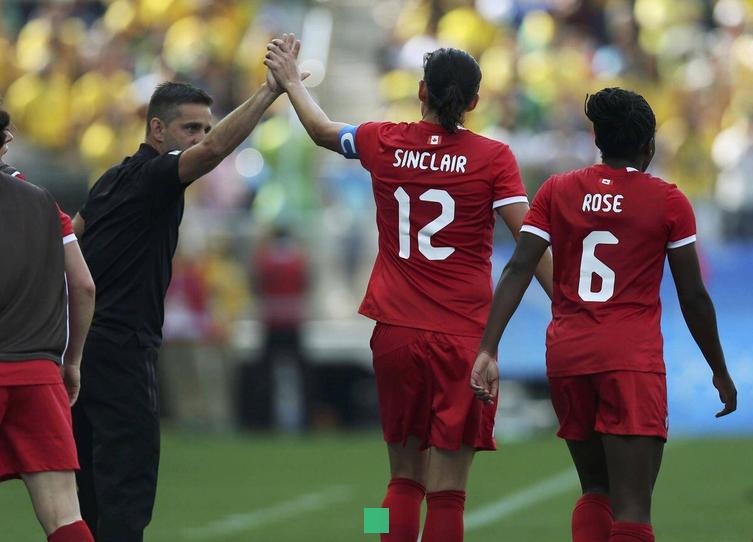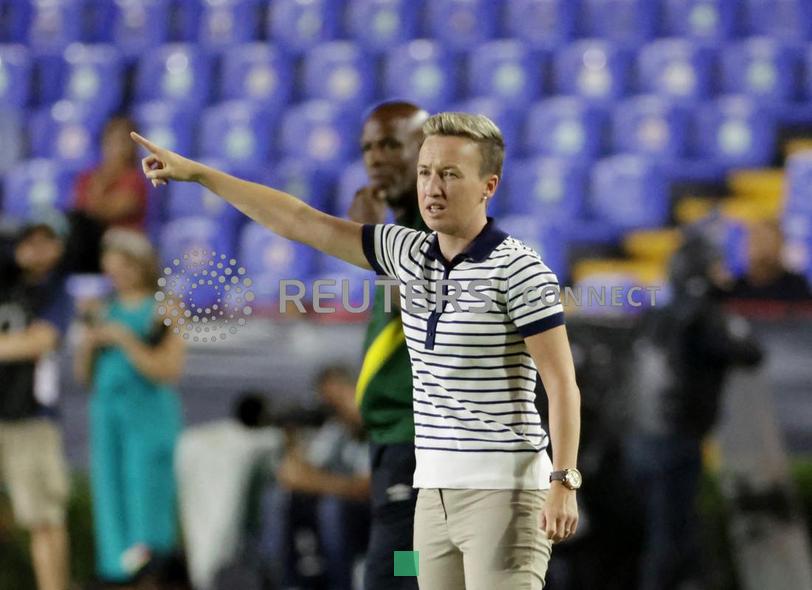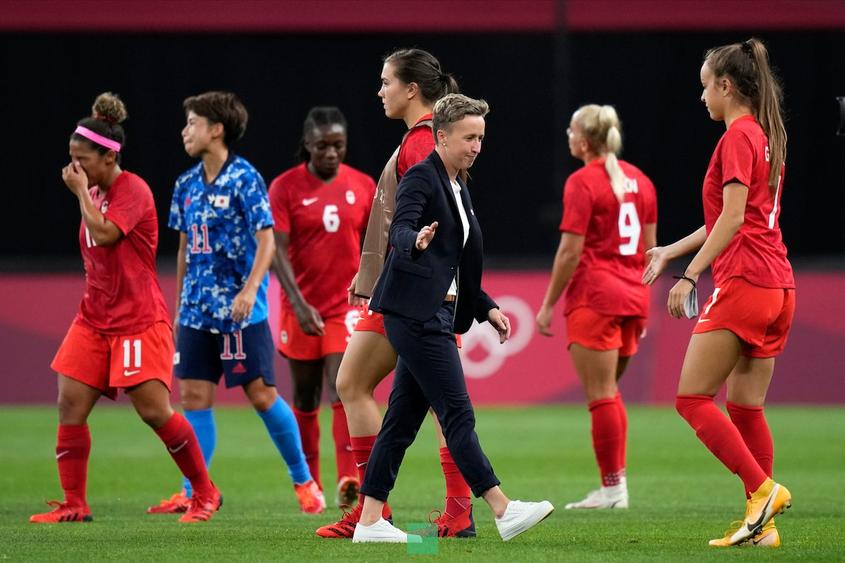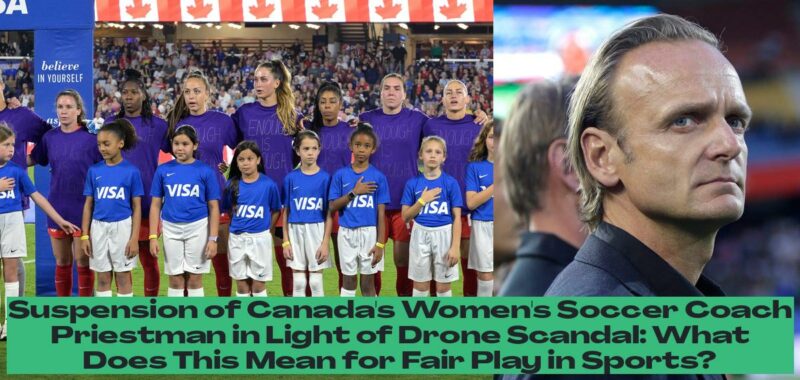Canada’s Women’s Soccer Head Coach Priestman Suspended Amid Drone Scandal

The world of sports was thrown into a whirlwind of controversy when news broke of Canada’s women’s soccer head coach, Bev Priestman, being suspended and removed from the 2024 Paris Olympics. This unexpected turn of events stemmed from a drone spying scandal that shook the Canadian Olympic team to its core.
The incident, which unfolded during the early stages of the Olympics, involved the alleged use of drones to gather information on opposing teams. This clandestine tactic, deemed a violation of both sporting ethics and fair play, sparked a furious debate about the boundaries of competitive advantage in the modern sporting landscape.
Canada Soccer, the governing body for the sport in the country, acted swiftly by suspending Priestman from her coaching duties and initiating a comprehensive investigation into the matter. The Canadian Olympic Committee (COC), in solidarity with Canada Soccer and upholding the principles of fair play, made the decision to remove Priestman from the coaching staff, effectively ending her involvement in the Games.
The controversy surrounding the drone spying scandal sent shockwaves through the sporting world, raising serious questions about the integrity of international competition and the lengths to which some teams might go to gain an edge. The incident highlighted the delicate balance between technological advancement and the preservation of fair play in sports, forcing athletes, coaches, and fans alike to confront a new era of competitive strategies.
- Canada’s women’s soccer head coach, Bev Priestman, was suspended and removed from the 2024 Paris Olympics due to a drone spying scandal.
- The scandal involved the alleged use of drones to gather information on opposing teams, sparking a debate on competitive advantage and fair play in sports.
- Canada Soccer swiftly suspended Priestman and initiated an investigation, leading to her removal from the coaching staff by the Canadian Olympic Committee.
- The incident raised questions about the integrity of international competition, highlighting the balance between technological advancement and fair play in sports.
The Fallout: Priestman’s Removal and the Ongoing Investigation
The removal of Bev Priestman from the Canadian Olympic team was a significant blow to the team’s morale and a major setback in their quest for glory in Paris. Priestman, a respected coach with a proven track record of success, had instilled a winning mentality within the team, leading them to victory in several prestigious tournaments. However, the gravity of the drone scandal overshadowed her coaching achievements, forcing her to step down from her role.
The COC expressed its disappointment over Priestman’s removal, acknowledging the impact it would have on the team’s performance. However, the COC also emphasized its commitment to upholding the highest standards of ethical conduct, stating that the decision to remove Priestman was made in the best interests of the team and the integrity of the Games.
The investigation into the drone spying scandal is ongoing, with Canada Soccer vowing to leave no stone unturned in uncovering the truth. The investigation is expected to delve into the origins of the drone operation, the individuals involved, and the extent of their knowledge regarding its illicit nature.
The findings of the investigation will have far-reaching consequences for the Canadian women’s soccer team and the sport of soccer as a whole. It could lead to further disciplinary actions against individuals found to have been involved in the scandal, potentially affecting their careers and reputations.
The Drone Spying Incident: A Violation of Fair Play and Sportsmanship

The alleged use of drones to spy on opposing teams represents a blatant violation of the principles of fair play and sportsmanship that underpin the Olympic Games. The act of gathering intelligence on opponents through such clandestine means undermines the spirit of competition, where success is earned through skill, hard work, and fair play.
The drone spying incident raises concerns about the potential for similar tactics to be employed by other teams in the future, potentially creating a culture of suspicion and distrust within the sporting world. It calls for a thorough reevaluation of existing rules and regulations to ensure that technological advancements are not exploited to gain an unfair advantage.
The Impact on the Canadian Women’s Soccer Team
The controversy surrounding the drone scandal has cast a shadow over the Canadian women’s soccer team’s participation in the 2024 Paris Olympics. The team was already facing the daunting challenge of competing against some of the world’s best soccer teams, but the scandal has added another layer of complexity to their journey.
The loss of Bev Priestman, a key figure in the team’s success, has left a void that will be difficult to fill. However, the team’s players and coaching staff have shown resilience in the face of adversity, vowing to focus on their performance and showcasing their talent on the field.
The scandal has also served as a reminder of the importance of team unity and cohesion, particularly in the face of adversity. The team’s ability to navigate these challenging times will be a testament to their character and determination.
A Call for Transparency and Accountability

In the wake of the drone spying scandal, there is a growing demand for transparency and accountability from Canada Soccer and the COC. The public is eager to understand the extent of the scandal, the individuals involved, and the steps being taken to address the issue.
Transparency is crucial in rebuilding trust and confidence in the integrity of the sport. A thorough and impartial investigation is essential to ensure that the truth is revealed and that those responsible are held accountable.
The Future of Fair Play in Sports
The drone spying scandal serves as a wake-up call for the sporting world to reassess the evolving landscape of competition in the age of technology. The incident highlights the need for a proactive approach to the ethical use of technology in sports, ensuring that it enhances the experience for athletes and fans without compromising the principles of fair play.
The scandal has also sparked discussions about the role of governing bodies in regulating the use of technology in sports. Clearer guidelines and stricter enforcement mechanisms are needed to prevent similar incidents from occurring in the future.
The future of fair play in sports depends on the collective commitment of athletes, coaches, officials, and governing bodies to uphold the highest standards of ethical conduct. It is time to draw a line in the sand and ensure that technological advancements are used to enhance the sport, not to undermine its integrity.








